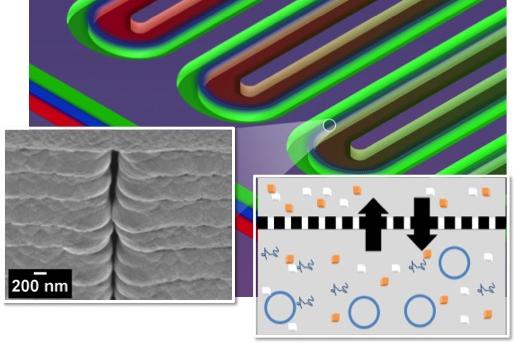Nanoreactors Increase Cell-Free Protein Synthesis Yield

Researchers from the Department of Energy’s Oak Ridge National Laboratory (ORNL) have developed an innovative cell-free protein synthesis system based on microfabricated reactors that produce therapeutic proteins on demand. The study was published in the journal Small.
Cel-free protein synthesis (CFPS) technology allows producing proteins cheaply without the need of sustaining living cells. CFPS systems can be complemented with micro and nanofluidics for point-of-care use. Proteins can be synthesized when and where they are required, avoiding the need of maintaining the cold chain. The last innovation in the field comes from a team of researchers from ORNL’s Biosciences Division led by Andrea Timm and Scott Retterer who created a microfluidic bioreactor that produces a single therapeutic dose of a pharmacological protein.
Feeder and reactor parallel channels connected by a membrane
The newly designed CFPS bioreactor was constructed with state-of-the-art material deposition processes. The system consists of two parallel channels shaped as a serpentine, which allows for longer reaction times and increased protein production. The “feeder” and “reactor” channels are connected by a nanoporous membrane that allows exchange of metabolites, energy and inhibitory species (metabolites that hinder protein production) between both channels. Small molecule transfer between channels can be regulated by plasma-enhanced chemical vapor deposition and atomic layer deposition.
The new CFPS system could be very useful for production of orphan drugs and personalized medicines not suitable for mass production. People living in isolated places and natural disaster survivors could also benefit from it.
Source: ORNL

